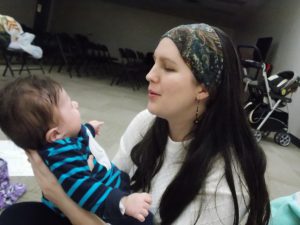When Love Disappears at the Border
Children, some experts say, are usually able to adapt to their parent’s level of ability to care for them. But I cannot believe they ever get over being abandoned. I know this because abandonment has played a huge, though mostly silent, role in my own family history. It’s something no parent or grandparent wants to talk about. The pain is just too great.
To children who are sent away from their parents, abandonment is just what it feels like. They trusted those adults to love and care for them. And that bond of trust has been broken. Regardless of the revolving facts our president would like us to believe, children don’t understand politics. They understand love.
Children understand love through the smiling eyes of a mother and father, and through the anticipated daily routine that brings rhythm and stability to their young lives. Children feel love from all the small things parents do, like making them something good to eat, washing their little faces and hands, singing songs and telling stories. This is what builds healthy, secure attachment. This is what makes children feel they are important and safe in the world.
So, yes. I am enraged. Livid. That bonds so lovingly created within the family unit have been crushed at the border. That children’s attachment to primary caregivers has been so recklessly endangered by our president, and torn asunder by his ICE lackeys as though this sacred trust was a disposable commodity.
These legalists know nothing of empathy and compassion. If they did, they would turn it all around instantly, because love knows no borders. No boundaries. The means to prevent this atrocity has always existed. But no one has had the political chutzpa to do anything about it.
I remember sitting with my grandmother in her tiny New Jersey kitchen, my tape recorder on “play,” while I held my sleeping three-year-old daughter. “I’ll never forgive her that,” my grandmother said in her thick Hungarian accent. Despite the passing of close to 70 years, my grandmother still felt the sting of being left behind in the Old Country.
Her parents left Europe to make a better life for their family in the United States. They were grape farmers, and she was only seven-years old. But WWI got in the way, and when they finally went back for her, she was already 13. Home in America she found a different way of life – and two American-born sisters who’d gotten all their parents love and attention.

My grandmother Helen.
Closer to home, my father was abandoned by his father at the tender age of four. It was during the Great Depression, and he never recovered from the loss. Instead of dealing with the tremendous emotional pain, he shut himself off. He raged. He became a work-a-holic.
And so I studied attachment. For my own benefit, mostly, but also to make sure my children felt loved and secure.
I hope none of the migrant children will have to endure lengthy separations. However, I know from talking with adoptive parents that even a few weeks of separation from a loving, responsive caregiver can cause attachment disorder in babies.
No matter who the family is or where they’re from, no one should mess with the love between a parent and child. Because secure attachment, which somewhere around 60% of all children in this country are lacking, is foundational to just about everything else in a child’s life, including maintaining normal stress-levels, learning, relationships, building resilience, and even physical health.
And oh, yeah, it’s a God thing.
So when I think about the hundreds of migrant children separated from their parents, I realize they will have suffered tremendous trauma. And it’s a given that they will have to deal with its hard-to-heal repercussions.
Those in charge of decision-making in this country cannot have a clue about the importance of attachment. Perhaps these politicians formed weak attachments with their own mothers. Perhaps their mothers rejected them, putting them off when they were hungry or sad. Maybe they were locked in their rooms when they were naughty.
“States become traits,” according to neuro-psychologist Allen Shore. It basically means that people get wired up the way they are treated as infants and very young children. Therefore I have to believe that those responsible for such harsh separation and incarceration policies were abandoned or neglected in a way that caused them to be emotionally disabled, and lacking empathy for others. Because only the most hardened of hearts could have caused this to happen. FFG



